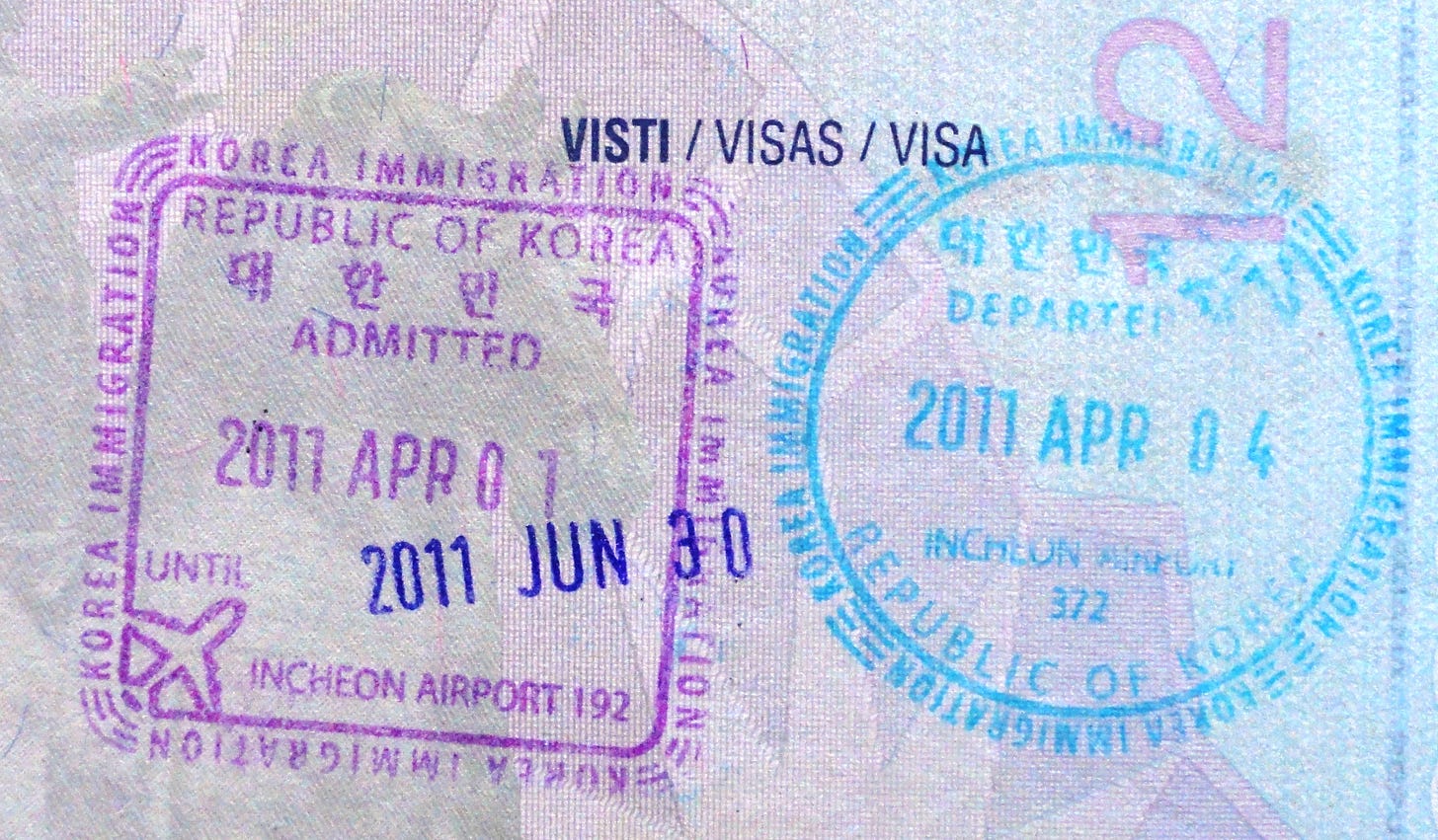An ex-investment banker friend recently told me an excellent story about a deal pitch he and his boss made back in the 1990’s to a large Korean bank to lead manage a USD 500m bond issuance. At the time, he was working for Solomon Brothers (later absorbed into Citi Group), and the presentation slot allocated to them was the last in a long day of candidates for the lead manager position. Goldman Sachs, JP Morgan and Morgan Stanley all entered and exited the presentation room before them with mountains of documents and expensively assembled teams of senior executives jetted in from Wall Street.
When my friend’s time finally came it was late and the Korean bankers were noticeably tired. My client and his boss sat down and the lead Korean, observing their paucity of numbers and lack of mountainous documents, asked “Don’t you have any documents to present to us?”
“Yes, we have two” replied my friend, and proceeded to put his and his bosses passports on the table.
He then said: “If you check our passports, you will count 29 entry visas into Seoul in the past six months alone. We don’t fly our chairman in just when we want to win a deal. We are constantly here on the ground because we are committed to the South Korean market and our relationship.”
They won the deal.
When trying to influence others, being authentic and aligning ourselves with their culture will influence our outcome positively. The importance of being able to demonstrate sustained commitment to relationships is critical to business success in many cultures, especially in Asia and where I now live, the Middle East. Of course, relationship is important in all cultures, however there is no denying the more transactional approach to business as we move West.
One of the good things about showing authenticity, is that it doesn’t require the largest budget or team. There are many ways to show commitment that don’t require us to throw money at the situation; time and expertise are good proxies. In a sense this is what my friend proved to the Korean bank; he and his boss demonstrated they were not only investing their time and offering their expert insights regularly, but also prioritising the relationship by their actions. There are few things that go further to convince a party that you are serious about the relationship than giving that most precious of assets to them; your time and knowledge.
However, this comes with a warning: If we give our time and expertise to others without either (i) making it clear that they are valuable or (ii) as the relationship develops asking for something in return, the other side will have the perception that our time and/or expertise are of limited value and will be less inclined to reciprocate.
Even in early-stage relationships, it is incumbent upon us to clarify the scarcity of the value that we demonstrate, and as the relationship develops we should discuss what can be expected in return.
For short form videos, quick tips, useful quotations and other items related to soft skills. Please follow me on the following link! https://instagram.com/softskillsexpert?igshid=NTc4MTIwNjQ2YQ==
To catch up on previous blogs and make sure you’re not missing out on some great insights, check out the archives here.




